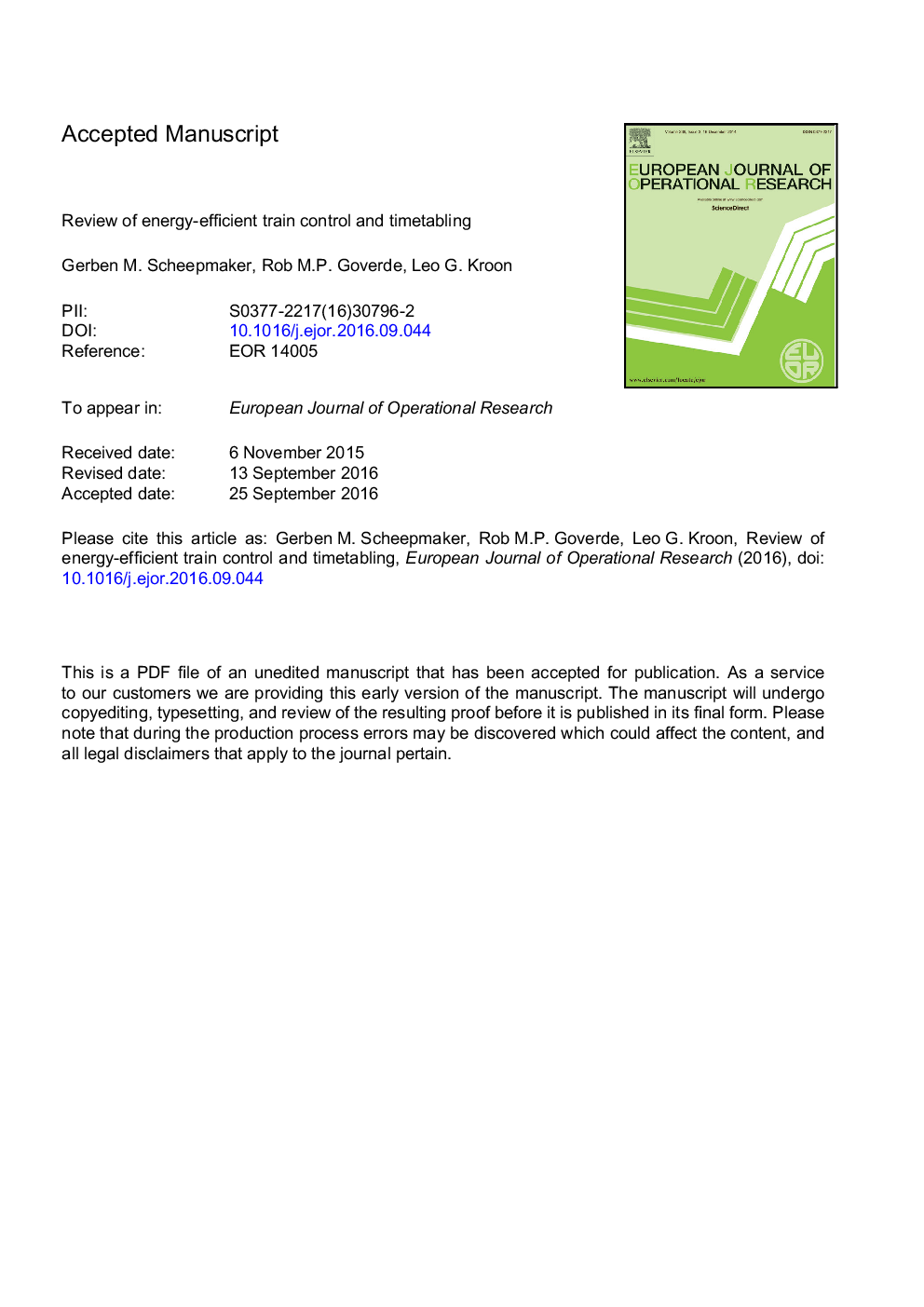| کد مقاله | کد نشریه | سال انتشار | مقاله انگلیسی | نسخه تمام متن |
|---|---|---|---|---|
| 4960051 | 1445965 | 2017 | 28 صفحه PDF | دانلود رایگان |
عنوان انگلیسی مقاله ISI
Review of energy-efficient train control and timetabling
ترجمه فارسی عنوان
بازبینی کنترل و کنترل زمانبندی قطار با صرفه جویی در انرژی
دانلود مقاله + سفارش ترجمه
دانلود مقاله ISI انگلیسی
رایگان برای ایرانیان
کلمات کلیدی
برنامه ریزی، جدول زمانبندی، به حداقل رساندن انرژی، کنترل قطار مطلوب، ترمز بازسازی کننده،
موضوعات مرتبط
مهندسی و علوم پایه
مهندسی کامپیوتر
علوم کامپیوتر (عمومی)
چکیده انگلیسی
The energy consumption of trains is highly efficient due to the low friction between steel wheels and rails, although the efficiency is also influenced largely by the driving strategy applied and the scheduled running times in the timetable. Optimal energy-efficient driving strategies can reduce operating costs significantly and contribute to a further increase of the sustainability of railway transportation. The railway sector hence shows an increasing interest in efficient algorithms for energy-efficient train control, which could be used in real-time Driver Advisory Systems (DAS) or Automatic Train Operation (ATO) systems. This paper gives an extensive literature review on energy-efficient train control (EETC) and the related topic of energy-efficient train timetabling (EETT), from the first simple models from the 1960s of a train running on a level track to the advanced models and algorithms of the last decade dealing with varying gradients and speed limits, and including regenerative braking. Pontryagin's Maximum Principle (PMP) has been applied intensively to derive optimal driving regimes that make up the optimal energy-efficient driving strategy of a train under different conditions. Still, the optimal sequence and switching points of the optimal driving regimes are not trivial in general, which led to a wide range of optimization models and algorithms to compute the optimal train trajectories and more recently to use them to optimize timetables with a trade-off between energy efficiency and travel times.
ناشر
Database: Elsevier - ScienceDirect (ساینس دایرکت)
Journal: European Journal of Operational Research - Volume 257, Issue 2, 1 March 2017, Pages 355-376
Journal: European Journal of Operational Research - Volume 257, Issue 2, 1 March 2017, Pages 355-376
نویسندگان
Gerben M. Scheepmaker, Rob M.P. Goverde, Leo G. Kroon,
